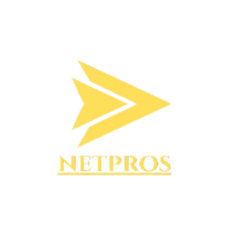As technology continues to evolve and reshape our everyday lives, the world of television is no exception. The rise of IPTV—Internet Protocol Television—has revolutionized the way people consume media, replacing the limitations of traditional cable and satellite TV with the speed, accessibility, and flexibility of the internet. In an age where on-demand content and personalization are key, IPTV stands as a modern solution that meets the expectations of today’s digital audience.
IPTV works by delivering television content over internet connections instead of using antennas, fiber optics, or satellite signals. This method not only eliminates the need for bulky hardware and complex installations but also opens up a world of entertainment that is always accessible, no matter the time or location. With IPTV, viewers can stream live television, rewatch missed shows, browse vast libraries of movies and series, and often do so on any device that can connect to the internet. This includes smartphones, tablets, smart TVs, and even laptops, allowing entertainment to travel with the viewer rather than being confined to a specific room in the house.
The shift from scheduled UK-based IPTV subscription programming to on-demand viewing is one of the core reasons IPTV has become increasingly popular. Unlike traditional television, which requires audiences to tune in at specific times, IPTV offers complete control over what to watch and when. Viewers no longer have to miss their favorite programs or wait for reruns. Instead, they can simply access the content they want, pause it, rewind, or even binge-watch entire seasons in a single sitting. This flexibility caters to the modern viewer’s lifestyle, where convenience and choice are not luxuries—they are expectations.
Another advantage that makes IPTV so attractive is the diversity of content it can offer. With IPTV platforms, users often have access to local channels, international broadcasts, niche programming, premium movie libraries, and live sports events—all through a single subscription. This global reach and variety make it easier for people from different cultures, languages, and backgrounds to find and enjoy content that speaks to their individual tastes. IPTV providers frequently update their content libraries, ensuring that there is always something new and relevant to watch, whether it’s the latest blockbuster release or a regional news update.
Despite its numerous advantages, the IPTV industry also faces challenges, especially with the presence of unauthorized providers. These illegal IPTV services often distribute copyrighted material without permission, exposing users to potential legal risks, unstable service, and poor streaming quality. As a result, choosing a licensed and reliable IPTV provider is crucial for both safety and viewing experience. Legitimate services not only ensure high-quality streams but also contribute to supporting the content creators behind the media we enjoy.
As broadband connections become faster and more reliable across the globe, the future of IPTV looks brighter than ever. Its ability to adapt to users’ needs, deliver diverse content, and integrate seamlessly into smart technology ecosystems positions it as the future of home entertainment. IPTV is not just a new way to watch TV—it is a complete reinvention of the viewing experience, driven by the digital age and built for the modern world.
